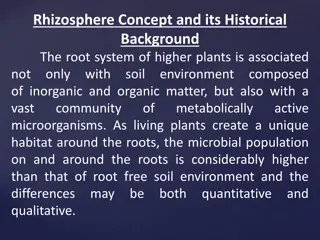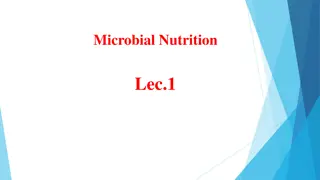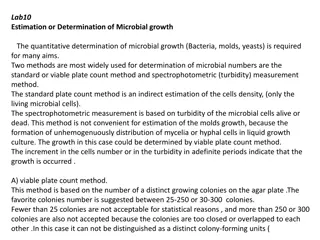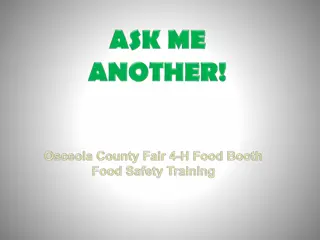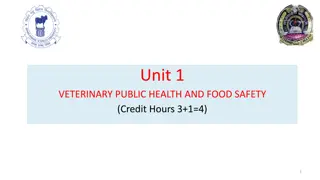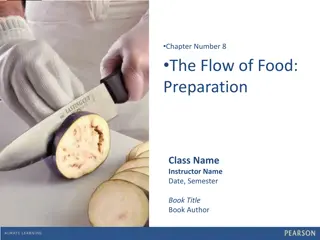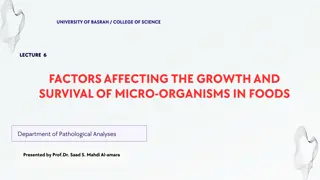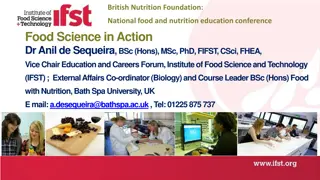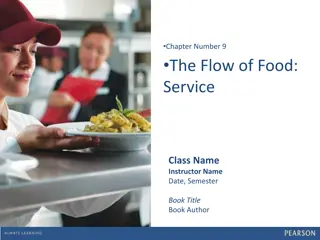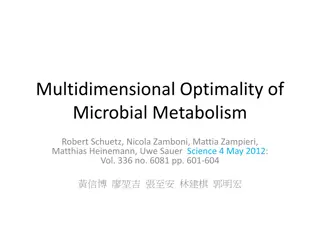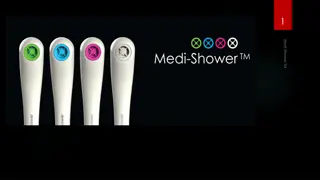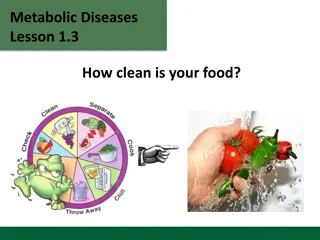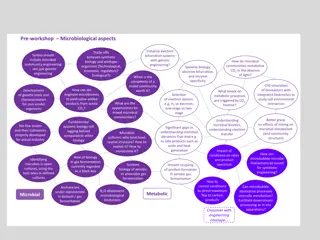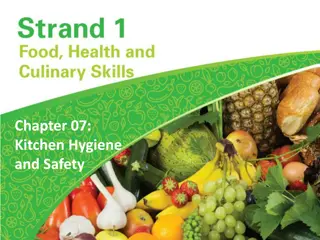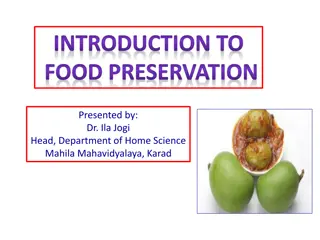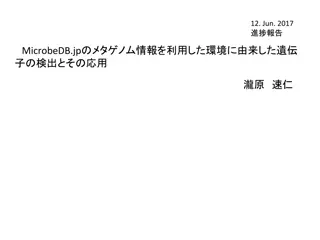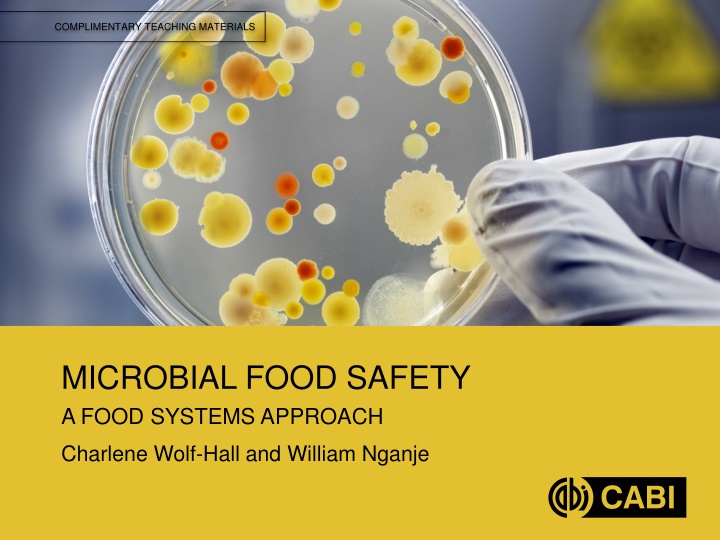
Microbial Food Safety Teaching Materials with A Food Systems Approach
Explore complimentary teaching materials on microbial food safety with a focus on ecological concepts, bacterial growth, microbial food safety terminology, and more. Enhance your knowledge on microbiomes of food and modeling microbial growth and survival.
Download Presentation

Please find below an Image/Link to download the presentation.
The content on the website is provided AS IS for your information and personal use only. It may not be sold, licensed, or shared on other websites without obtaining consent from the author. If you encounter any issues during the download, it is possible that the publisher has removed the file from their server.
You are allowed to download the files provided on this website for personal or commercial use, subject to the condition that they are used lawfully. All files are the property of their respective owners.
The content on the website is provided AS IS for your information and personal use only. It may not be sold, licensed, or shared on other websites without obtaining consent from the author.
E N D
Presentation Transcript
COMPLIMENTARY TEACHING MATERIALS MICROBIAL FOOD SAFETY A FOOD SYSTEMS APPROACH Charlene Wolf-Hall and William Nganje
Chapter 2: Ecological Concepts of Foods and Definitions of Pre- and Post-Harvest COMPLIMENTARY TEACHING MATERIALS
Key Questions What is ecology, and how are these concepts applied to foods? How are microorganisms affected by the environmental factors in foods? What is hurdle technology? What do pre- and post-harvest mean? COMPLIMENTARY TEACHING MATERIALS
Ecological Terms Ecology - The branch of biology that deals with the relations of organisms to one another and to their physical surroundings. Ecosystem A functional system which includes the organisms of a natural community together with their environment. Microbiome - The full collection of microbes (bacteria, fungi, virus, etc.) that naturally exist within a particular biological niche such as an organism, soil, a body of water, etc. COMPLIMENTARY TEACHING MATERIALS
Microbiomes of Food Food is not sterile The majority of microorganisms in food microbiomes are harmless COMPLIMENTARY TEACHING MATERIALS
Bacterial Growth Curve COMPLIMENTARY TEACHING MATERIALS
Modeling Microbial Growth and Survival www.combase.cc COMPLIMENTARY TEACHING MATERIALS
Microbial Food Safety Terminology Infective Dose - The number of pathogenic microorganisms necessary to cause infection in a host. Secondary Metabolites - Chemicals synthesized by organisms that do not appear to have a direct role in the organism's growth. Antibiotics and mycotoxins are examples of secondary metabolites. Toxin - A substance that has toxicity. COMPLIMENTARY TEACHING MATERIALS
FAT TOM F = Food A = Acidity T = Time T = Temperature O = Oxygen M = Moisture National Restaurant Association Educational Foundation (2012) ServSafe CourseBook, 6th edition. COMPLIMENTARY TEACHING MATERIALS
Hurdle Technology - The strategic manipulation of environmental factors to control microorganisms in foods, allowing for better quality food production Bacterial growth and reduction curves depicting Escherichia coli O157:H7 (USDA, 2003). (A) Under aerobic conditions in broth culture at 25 C, pH 7, 0.5% sodium chloride and initial concentration of 3 colony forming units (CFU)/ml (time is the hurdle). (B) The same conditions except for a temperature of 5 C (time and temperature are hurdles). (C) The same conditions as (B), but with a lower pH of 4.5 (time, temperature and pH as hurdles). (D) Survival during fermentation of Soujouk-style fermented sausage (time, temperature, pH, oxygen content, additives, and competing microflora as hurdles). COMPLIMENTARY TEACHING MATERIALS
Changes to Environmental Conditions Pre-Harvest - Occurring before a crop or livestock for food are harvested. Post-Harvest - The handling of food crops or animals immediately after the harvest step. COMPLIMENTARY TEACHING MATERIALS
THANK YOU Name: Charlene Wolf-Hall & William Nganje Email: charlene.hall@ndsu.edu & William.Nganje@ndsu.edu COMPLIMENTARY TEACHING MATERIALS


